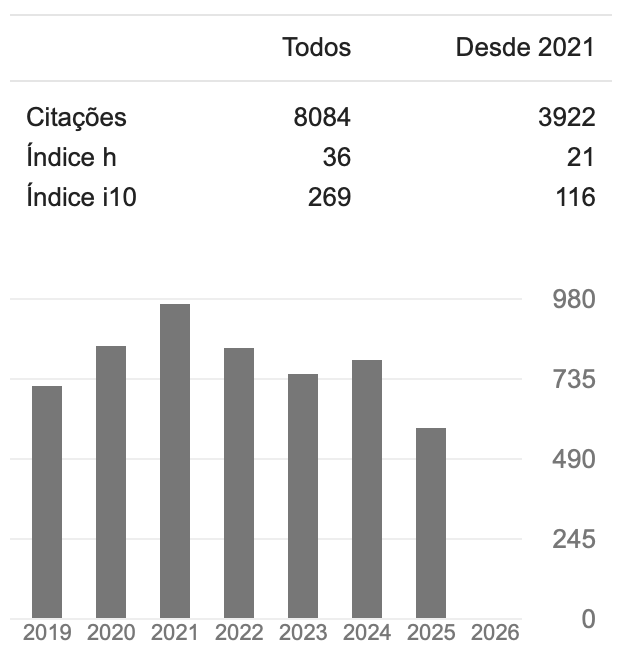Use of F-Words in pediatric physiotherapeutic rehabilitation services: an observational study
DOI:
https://doi.org/10.17765/2176-9206.2023v16n4.e11414Keywords:
Child, Physiotherapy, Pediatrics, Disabled people, CIFAbstract
The aim of this study was to assess the level of knowledge of physiotherapists who work in public and private pediatric rehabilitation services about knowledge of F-Words, as well as to identify the main barriers to applying these tools in care. This is a cross-sectional study, conducted in accordance with the STROBE recommendations. The sample had a mean age of 28.1 ± 5.8 years, consisting of 54 physiotherapists who work in public and private pediatric rehabilitation services. It was observed that 55.6% of the sample had already heard about F-Words; 44.4% did not know about the importance; 94.4% establish therapeutic goals in partnership with the family; 57.4% had never heard of F-Words Tools; 77.8% never applied these tools in care. It is concluded that the F-Words are important, but are little used in assistance due to the lack of knowledge of physiotherapists in relation to the tool and instruments.Downloads
References
1. Silva BT, Iasminy CCG, Dornelles SS, Kuerten RP, Dutra TA, Zuchetto SM. Desafios para inclusão da criança com deficiência na escola. Enferm. Foco. 2015; 6(1): 36-40. Disponível em: https://docplayer.com.br/226392917-Desafios-para-inclusao-da-crianca-com-deficiencia-na-escola.html
2. Fiamenghi JRGA, Messa, AA. Pais, filhos e deficiência: estudo sobre as relações familiares. Psicol. Cien e Prof. 2017; 27 (2), 236-245. Disponível em: https://www.scielo.br/j/pcp/a/G88Kn76nWhwGZrCddBgkTMF/abstract/?lang=pt
3. World Health Organization. International Classification of Functioning, Disability and and Health (ICF). [Geneva Switzerland]: World Health Organization; 2001. Disponível em: https://www.who.int/standards/classifications/international-classification-of-functioning-disability-and-health
4. Oliveira MCU, Miccas C, Araújo CO, D’Antino MEF. O uso da CIF no contexto escolar inclusivo: um mapeamento bibliográfico. Rev Educ. Esp. [Internet]. 2021 Mar 23 [cited 2022 Dec 29]; e15/1-20. Disponível em: https://periodicos.ufsm.br/educacaoespecial/article/view/42725
5. Silva AVV, Sales WB, Tomaz RR. Abordagens fisioterapêuticas no tratamento da espasticidade em crianças com encefalopatia crônica não progressiva: uma revisão integrativa de literatura. Temas em Saúde. 2020;20(3). Disponível em: https://temasemsaude.com/wp-content/uploads/2020/06/20301.pdf
6. World Health Organization. International Classification of Functioning, Disability and and Health (ICF). [Geneva Switzerland]: World Health Organization; 2001. Disponível em:
7. Cerniauskaite M, Quintas R, Boldt C, Raggi A, Cieza A, Bickenbach JE, et al. Systematic literature review on ICF from 2001 to 2009: its use, implementation and operationalisation. Disability and Rehabilitation. 2010 Nov 13;33(4):281–309.
8. Organização Mundial da Saúde (OMS). Relatório Mundial sobre a Deficiência (World Report on Disability). The World Bank. Tradução: Secretaria dos Direitos da Pessoa com Deficiência do Governo do Estado de São Paulo, 2011.
9. Rosenbaum P, Gorter JW. The 'F-words' in childhood disability: I swear this is how we should think. Child Care Health Dev, v. 4, n. 38, p.457-463, 2012.
10. CROSS A. et al. Knowledge mobilization to spread awareness of the ‘F-words’ in childhood disability: lessons from a family-researcher partnership. Child: Care, Health and Development, v. 41, n. 6, p.947-953, 2015.
11. Sales WB, Oliveira ASC, França DCM, Mendes HAS, Vidal GP, Tomaz RR. Efeitos da pandemia da COVID-19 sobre os aspectos biopsicossociais de universitários paraíbanos: estudo transversal. Saúde e Pesquisa. 2022 Jul 19;15(3):1–15. Disponível em: https://periodicos.unicesumar.edu.br/index.php/saudpesq/article/view/10649
12. Brugnaro BH, Lima CRG, Campos AC de, Rocha NACF. Tradução dos “Instrumentos das F-Words” para o português brasileiro. Fis Mov. 2021; 34:1–7.
13. Soper AK, Cross A, Rosenbaum P, Gorter JW. Exploring the international uptake of the “F‐words in childhood disability”: A citation analysis. Child: Care, Health and Development [Internet]. 2019 May 23; Available from: https://www.canchild.ca/system/tenon/assets/attachments/000/002/726/original/Soper_et_al-2019-Child__Care__Health_and_Development.pdf
14. Bayón C, Martín-Lorenzo T, Moral-Saiz B, Ramírez Ó, Pérez-Somarriba Á, Lerma-Lara S, et al. A robot-based gait training therapy for pediatric population with cerebral palsy: goal setting, proposal and preliminary clinical implementation. Journal of NeuroEngineering and Rehabilitation. 2018 Jul 27;15(1).
15. Jeglinsky I, Autti-Rämö I, Brogren Carlberg E. Two sides of the mirror: parents’ and service providers’ view on the family-centredness of care for children with cerebral palsy. Child: Care, Health and Development. 2011 Sep 9;38(1):79–86.
16. Cross A, Rosenbaum P, Grahovac D, Brocklehurst J, Kay D, Baptiste S, et al. A Web-Based Knowledge Translation Resource for Families and Service Providers (The “F-Words” in Childhood Disability Knowledge Hub): Developmental and Pilot Evaluation Study. JMIR Rehabilitation and Assistive Technologies. 2018 Dec 21;5(2):e10439.
17. Bronfenbrenner, U. (1979). The Ecology of Human Development: Experiments by Nature and Design. Cambridge, MA: Harvard University Press.
18. Fidler DJ, Hepburn SL, Mankin G, Rogers SJ. Praxis Skills in Young Children with Down Syndrome, Other Developmental Disabilities, and Typically Developing Children. American Journal of Occupational Therapy. 2005 Mar 1;59(2):129–38.
Downloads
Published
How to Cite
Issue
Section
License
A submissão de originais para a revista Saúde e Pesquisa implica na transferência da Carta Concessão de Direitos Autorais, pelos autores, dos direitos de publicação digital para a revista após serem informados do aceite de publicação.A Secretaria Editorial irá fornecer da um modelo de Carta de Concessão de Direitos Autorais, indicando o cumprimento integral de princípios éticos e legislação específica. Os direitos autorais dos artigos publicados nesta revista são de direito do autor, com direitos da revista sobre a primeira publicação. Os autores somente poderão utilizar os mesmos resultados em outras publicações, indicando claramente a revista Saúde e Pesquisa como o meio da publicação original. Em virtude de tratar-se de um periódico de acesso aberto, é permitido o uso gratuito dos artigos, principalmente em aplicações educacionais e científicas, desde que citada a fonte. A Saúde e Pesquisa adota a licença Creative Commons Attribution 4.0 International.
A revista se reserva o direito de efetuar, nos originais, alterações de ordem normativa, ortográfica e gramatical, com vistas a manter o padrão culto da língua e a credibilidade do veículo. Respeitará, no entanto, o estilo de escrever dos autores. Alterações, correções ou sugestões de ordem conceitual serão encaminhadas aos autores, quando necessário. Nesses casos, os artigos, depois de adequados, deverão ser submetidos a nova apreciação. As opiniões emitidas pelos autores dos artigos são de sua exclusiva responsabilidade.

















